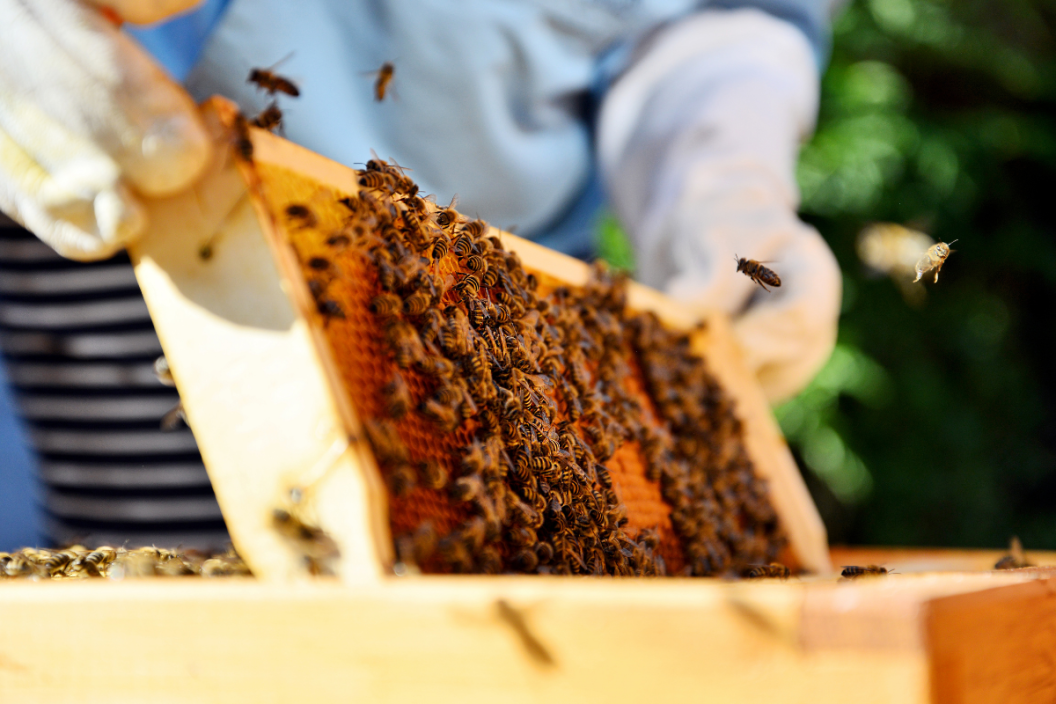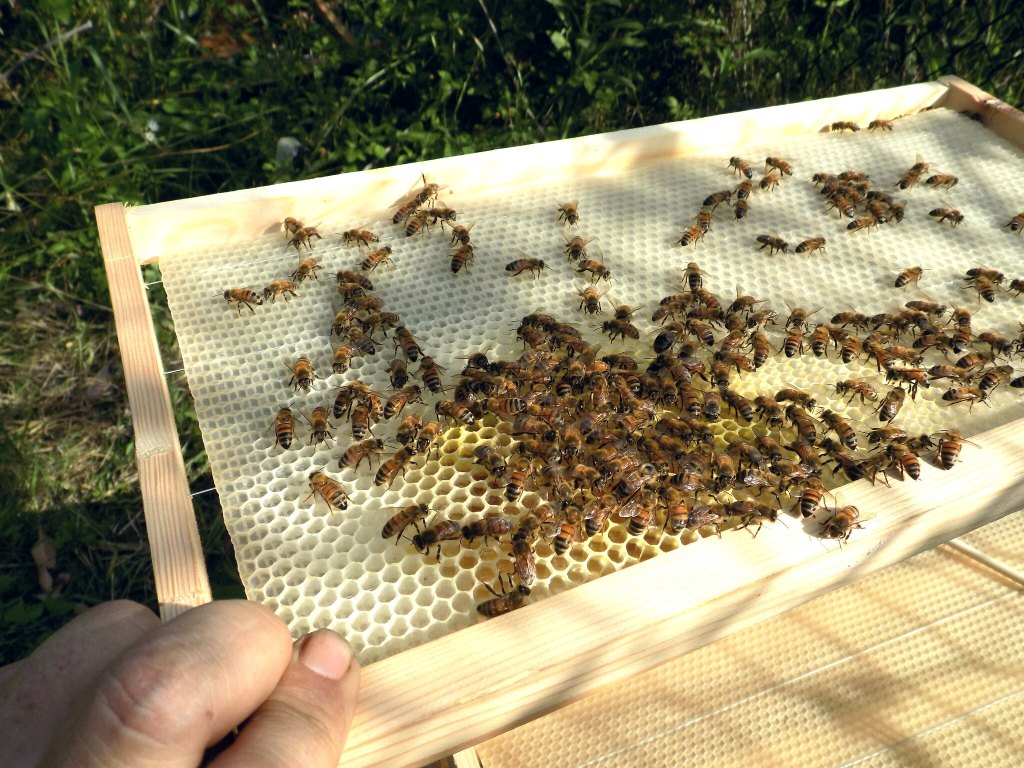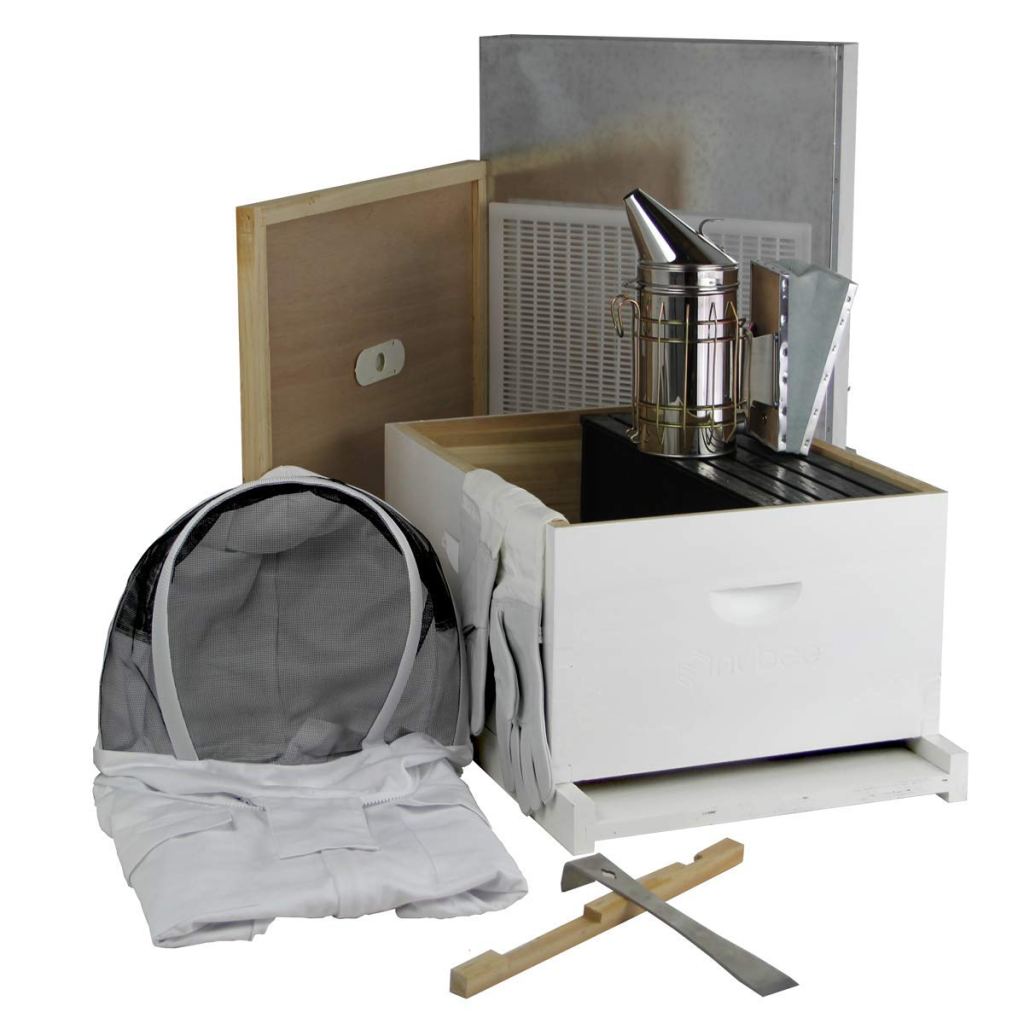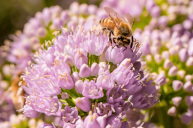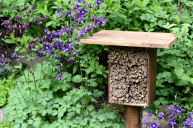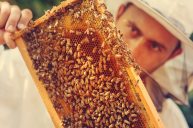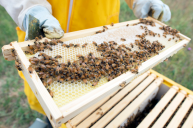Keeping bees is a multifaceted hobby that helps the environment, results in jars of fresh, sweet honey for the beekeeper, and provides a fun and interesting way to spend your time. Beekeeping is popular for those in the countryside who have space for beehives. If you've heard about the many benefits of beekeeping but aren't sure where to start, here are 12 Beekeeping for Dummies tips for success!
1. Learn About Bees
The first step in taking up any new hobby is to learn about it! A new beekeeper should learn the basics of bees and apiculture before buying the supplies. Learn about the phases of honey production, along with honeybee biology, evolution and behavior, because the more you know about honeybees, the better beekeeper you'll be. If you understand the needs of bees and the reasons behind their behavior, you'll know how to take care of them. A good place to start is the Beekeeping for Dummies books by Howland Blackiston, which you can find on amazon. He is an experienced beekeeper who has been a keynote speaker in over 40 countries, and many of his beekeeping books are available on a kindle.
2. Use Frames
Having the right equipment is a big factor in the success of your beekeeping adventure! It can be overwhelming at first to a newbie since there are lots of different options when it comes to beekeeping equipment. One important Beekeeping for Dummies tip is to choose a hive with moveable frames, like Langstroth hives. These hives are often easier to start off with compared to others like the Top Bar hives. Having movable frames will ensure that the bee combs are secure in the frame, along with allowing for convenient hive inspections.
3. Tell Your Neighbors
As wonderful as bees are, they get a bad rap among those who don't understand them. If you'll own hives near neighbors, it's best to tell your neighbors your plans beforehand. Bees are docile by nature until provoked, and they'll leave others alone until bothered. This is good to explain to your neighbors since many people have had painful experiences with bee stings. This is also a good idea because you'll need to conduct beehive inspections, and it's best to do these when your neighbors aren't around. Tell your neighbors about your plans and coordinate with them to make sure your hive inspections occur when children and pets are indoors.
4. Get The Right Clothes
https://www.instagram.com/p/CI4M9jOHLBt/
A successful backyard beekeeper will have the right clothing to keep bees! You need specific clothing that is smooth and light in color since bees react aggressively to dark and wooly materials. Choose a strong hut for maximum support to the veil, and buy ventilated veils for the summer months. Folding wire veils are a good choice since they provide plenty of space between the face and the bees. Your gloves should be strong and pliable, and your boots should cover your ankles. Elastic sided boots are a good choice! Beekeeping clothes along with a Beekeeping for Dummies book are a good item to put on your holiday wish list if you're just starting out.
5. Don't Forget the Water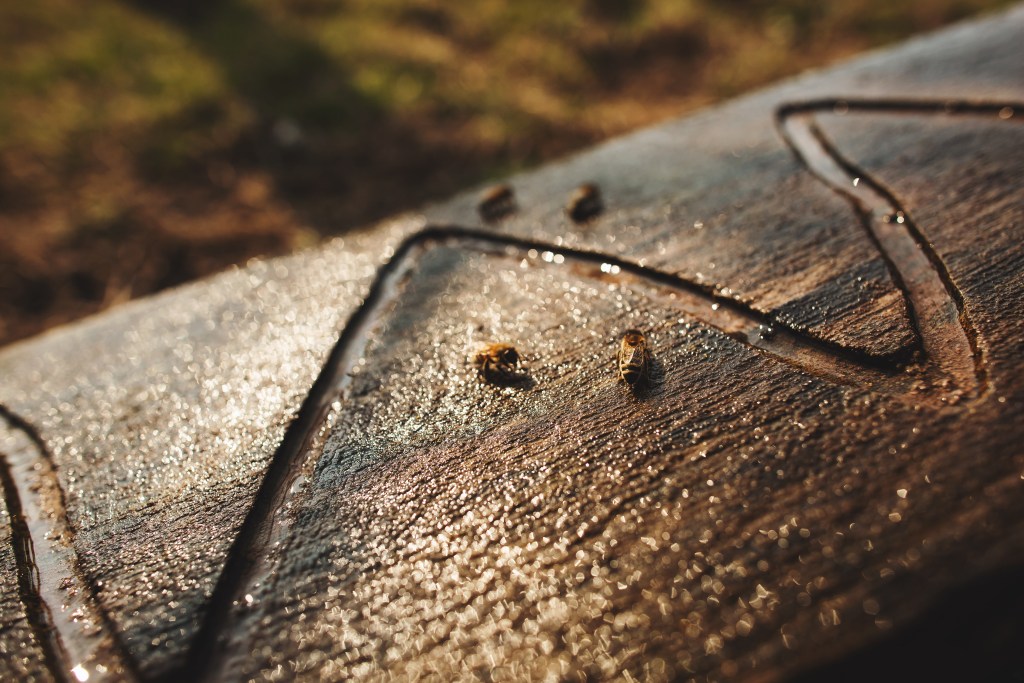
One of the essential ways to keep happy bees is to provide them with clean water in partial shade. A strong colony will need a liter of water during hot days! The water should be near the hive so that the bees won't need to search for it. If your bees find another source of water, it can be difficult to divert them, so it's best to avoid this completely by providing a good water source from the beginning. You should also provide floating material on the water so that the bees can drink without drowning.
6. The More Hives the Better!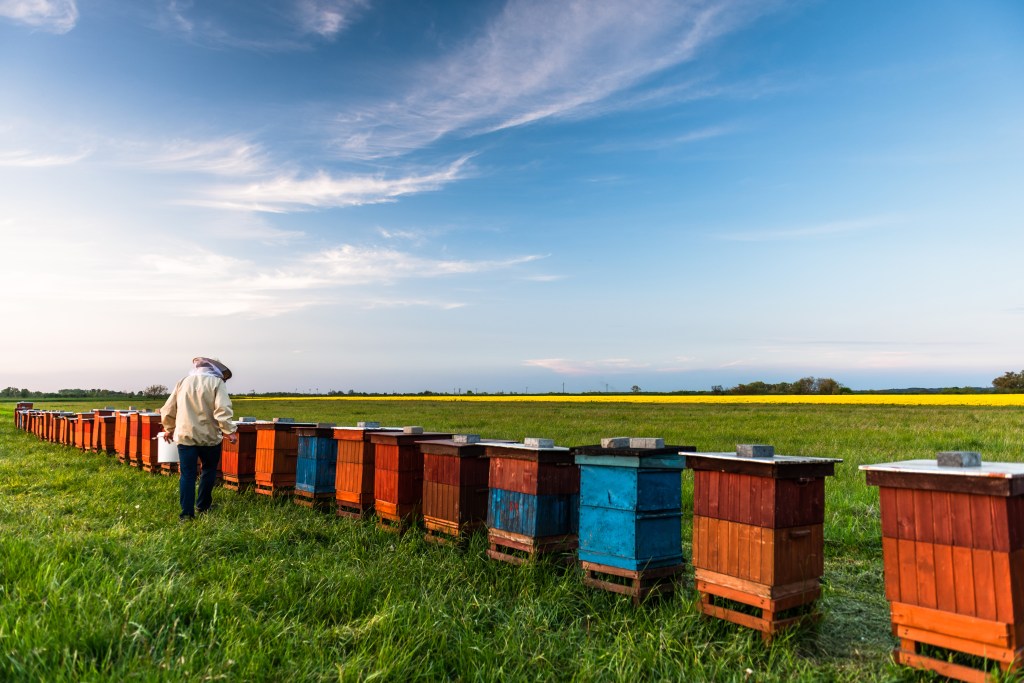
When backyard beekeeping, it's better to have two hives than one. This is more expensive initially, but it will give you more options and can be a simple solution to many common problems. If one hive doesn't have its own queen, you can use the eggs from your healthy hive to supplement. You can also transfer pollen, honey, or brood from the stronger hive to the weaker one. Also, colonies won't last forever, so a basic Beekeeping for Dummies suggestion is to always have more hives than you hope to keep in case some don't survive.
7. Check Those Hives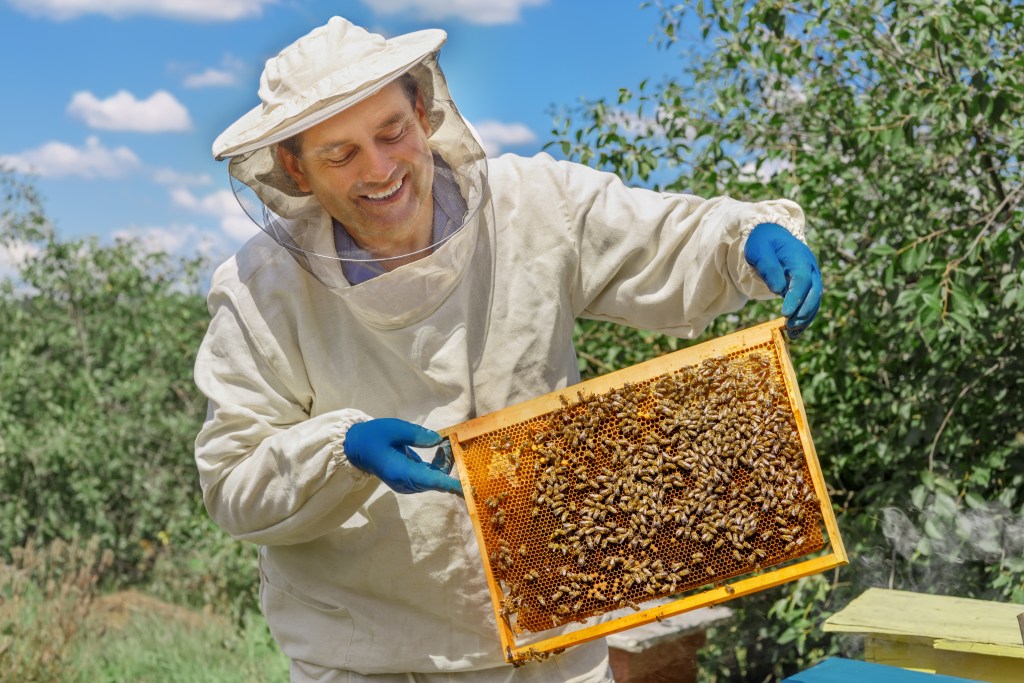
Beginning beekeepers are often unsure of how often to check their hives. If you check them too often, this will be an unnecessary disruption to the bees, exposing them to wind and heat. This stresses them out, especially at the beginning when they are still establishing themselves in their new home. On the other hand, a hive can run out of space and make queen cells in under two weeks, so it's not good to leave them unchecked for long either! Beekeeping experts like the author of Beekeeping for Dummies suggest checking them every 7-10 days.
A hive inspection involves opening the hive, making sure the bees have enough space and inspecting each frame. Look for eggs, larva, capped brood, queen cells, and indications of disease or stress. When you inspect, look for common diseases like varroa mites, tracheal mites, and Nosema, some of which are factors in colony collapse disorder, a disorder affecting bees across the United States. Each hive should take 30-45 minutes to inspect.
8. Location, location, location!
The apiary location is very important when figuring out beekeeping for dummies. The bees need to be able to get nectar and pollen easily. The beehive should be in an area without too much wind, where it can get morning sun and be shaded in the afternoon. It's also best to locate your beehives out of public view and away from noise since many people fear bees and noise can be a disruption. Your beehive should also be positioned well- level from side to side but slightly tilted to keep water from accumulating within. It should also be at least 18 inches off of the ground and have barriers for weeds and rodents. Another noteworthy location tip is to keep your bees away from plants treated with pesticides to avoid pesticide poisoning.
9. Don't Exclude the Queen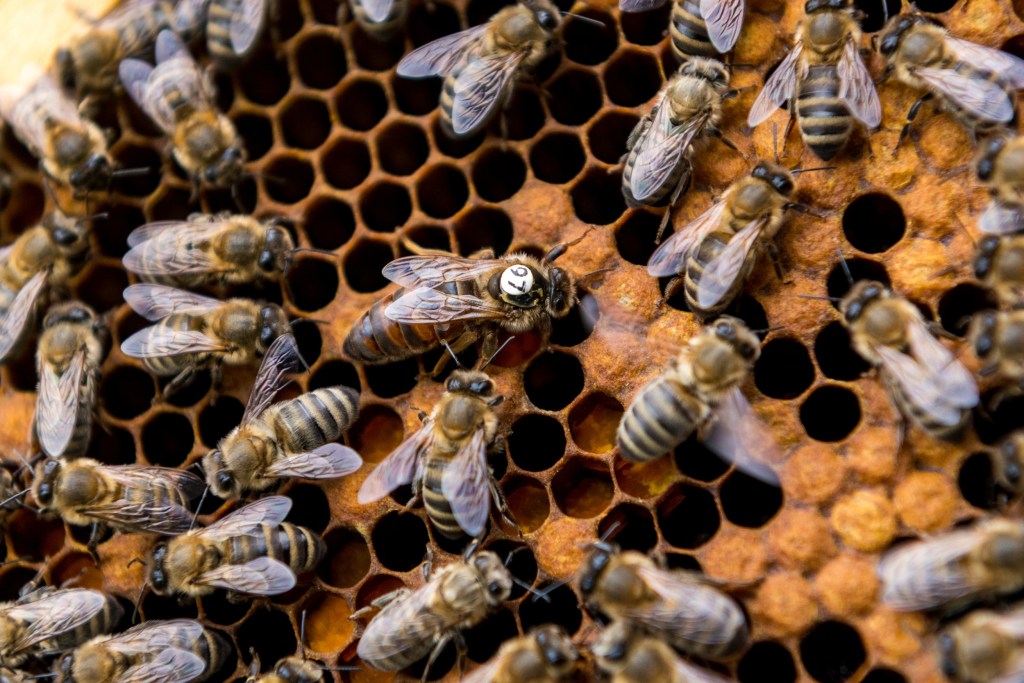
A big debate in beekeeping is whether or not to have a queen excluder. However, you don't need one! By excluding the queen, you encourage swarming. It's best to use the same size of box for everything since this will keep you from needing to exclude the queen.
10. Honey Harvesting
It's essential to learn about honey harvesting when starting out as a beekeeper. A healthy colony can produce up to 100 pounds of extra honey each season. When it comes to excess, extract honey from the honey supers, bottling it to keep as your own. However, you should also make sure to leave enough winter food for the bees so they make it through their first season. A minimum of 40 to 80 pounds of honey should be in each brood box so that they'll survive through the summer.
11. Grow Bee-Friendly Plants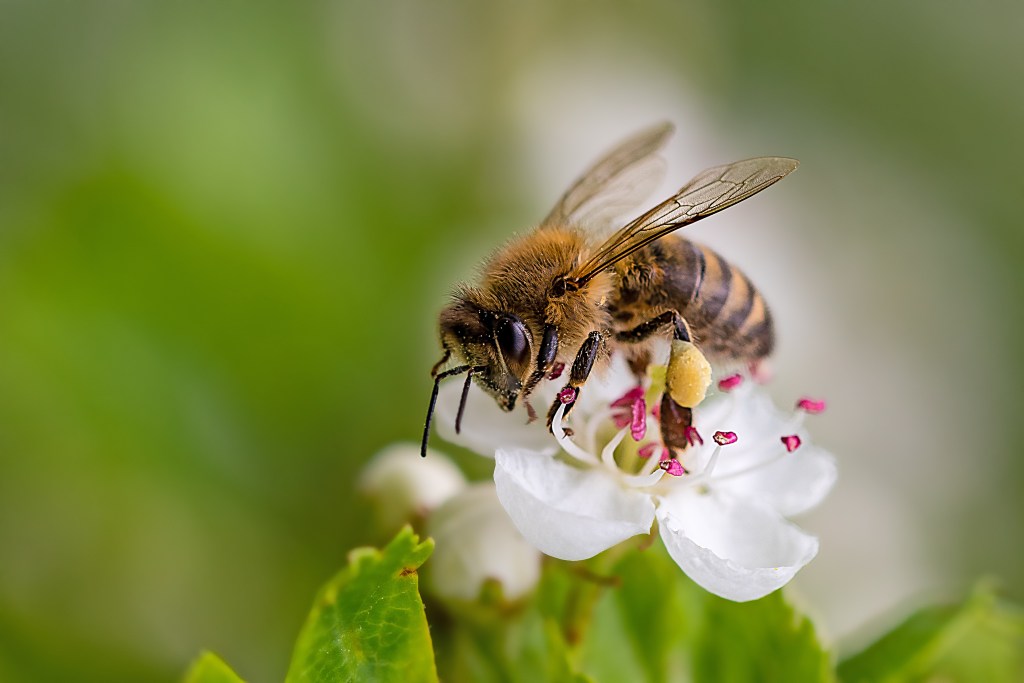
To make sure that your bees have enough nectar and pollen, grow bee-friendly plants near the hive. Some springtime bee-friendly plants are maple trees, clovers, basswood trees, legumes, willow trees, tulip poplar trees, berry plants, sweet clovers, locust trees, trees, grasses, and sorghum. When it comes to summer and fall plants, soybeans, milkweed, cotton, goldenrod, smartweed, garden plants, sumac, asters, sunflowers, and morning glory are good options. It's best to have plants that bees can forage during each season, so most beekeepers grow a mix of springtime plants and summer-fall plants.
12. Prevent Disease
https://www.instagram.com/p/CIyQ5OknYQQ/
One of the main ways to keep your bees healthy is to buy new equipment. Contaminated beehive equipment can cause disease in the bees, and this usually spreads rapidly since bees live in a colony. To avoid this, it's recommended to buy brand new equipment every 3 to 5 years. Used beehive equipment often has contaminants and chemicals, which the beeswax absorbs. Another way to prevent disease in your bees to medicate them when they're sick. Although some beekeepers believe in leaving your bee colonies to fight disease on their own, this will often end up with infected neighboring hives as well. Medicating your bees is important in keeping them healthy and alive!
Watch: Spike the Drawing Beetle
